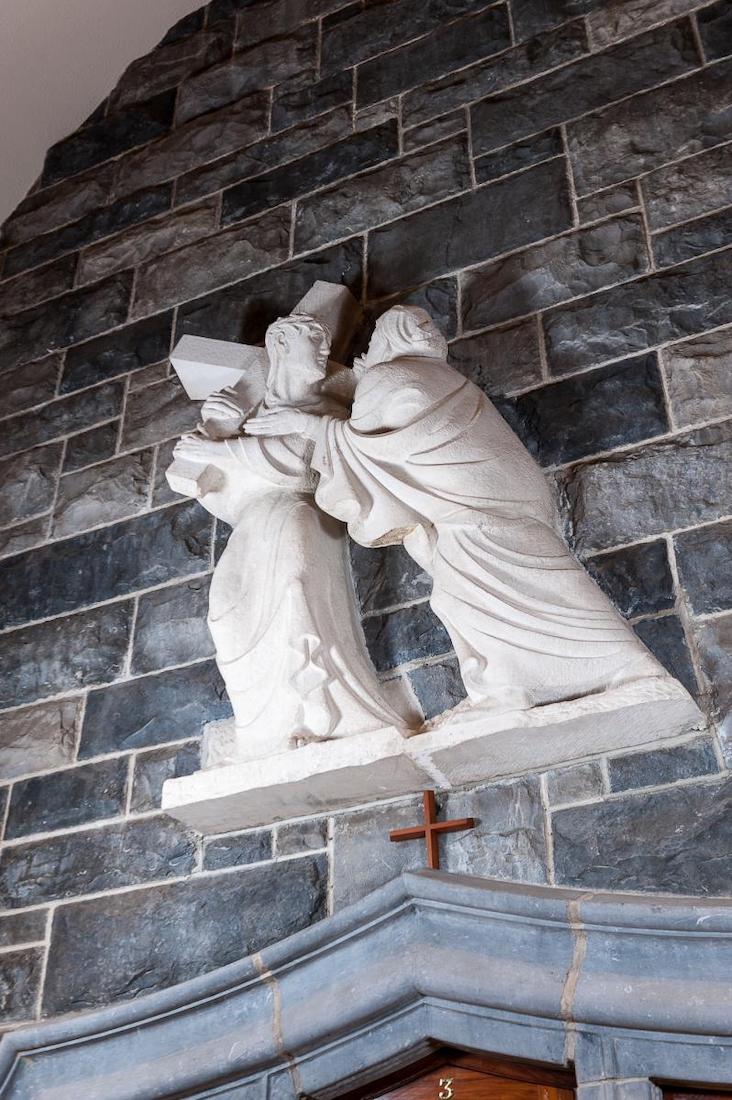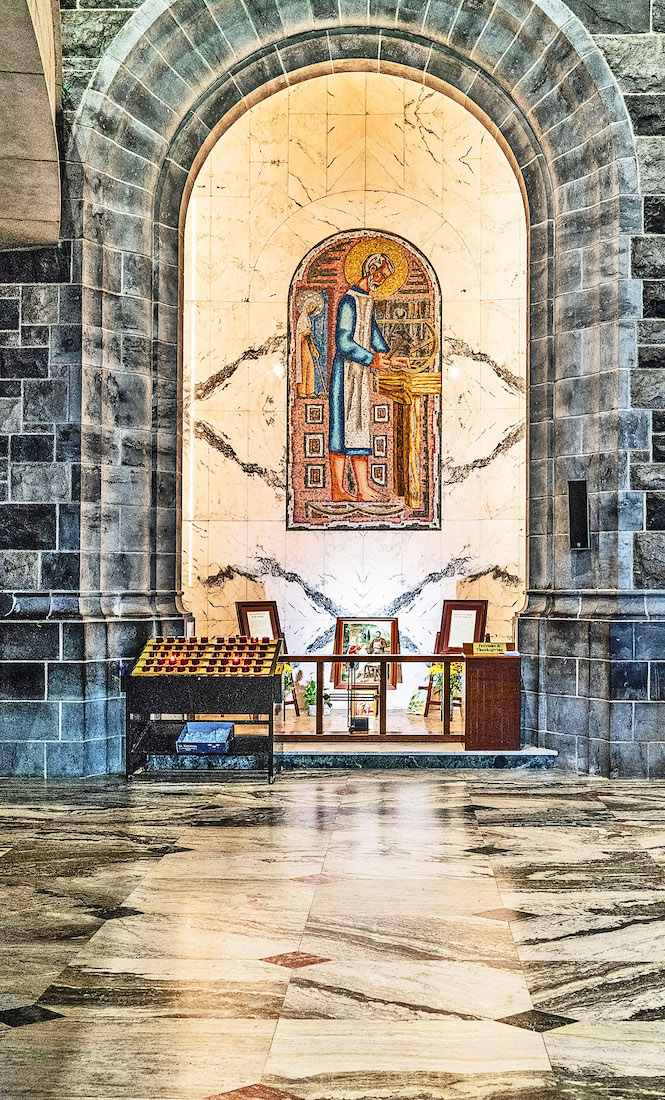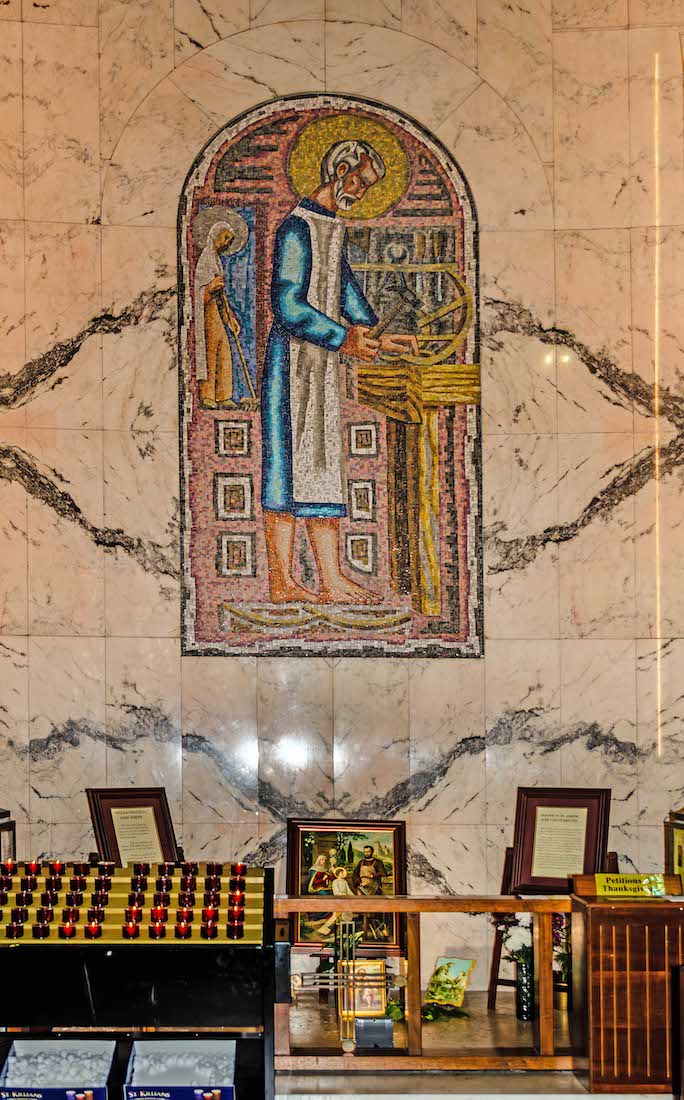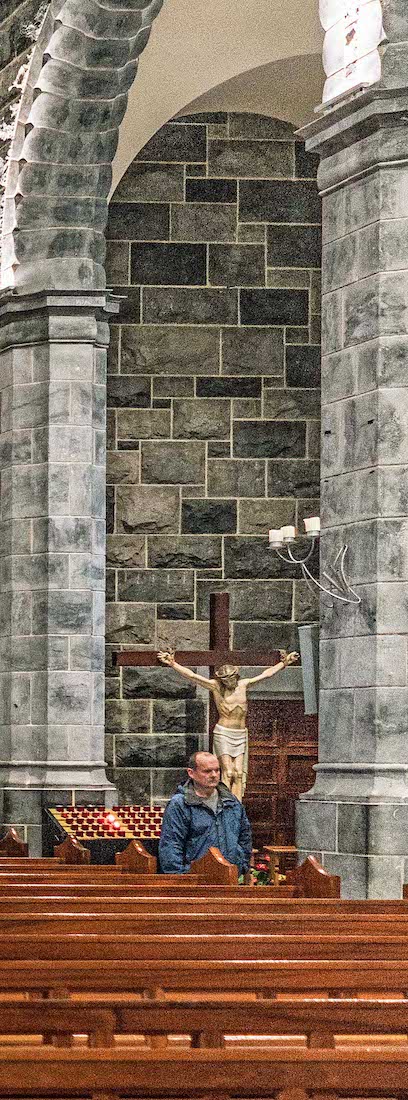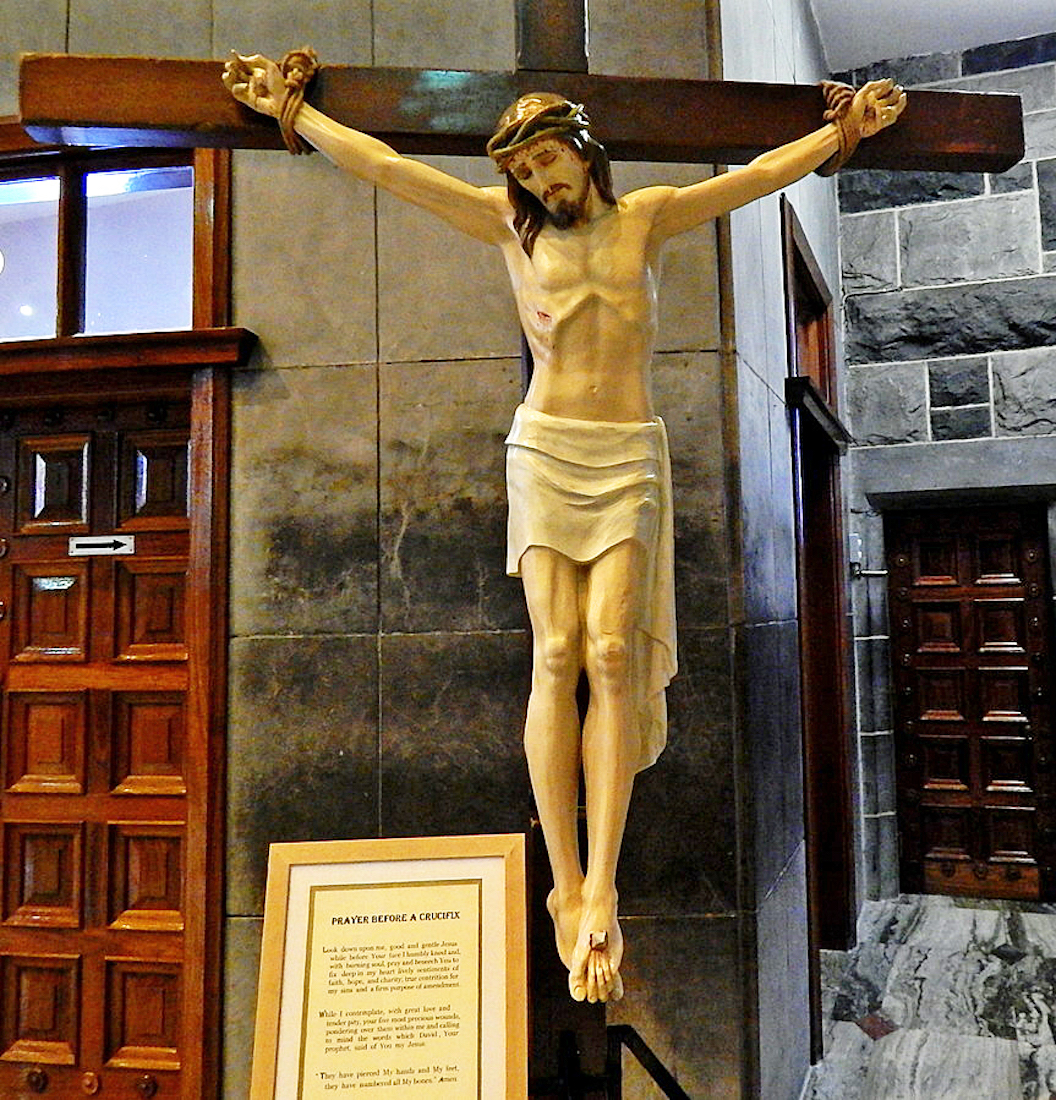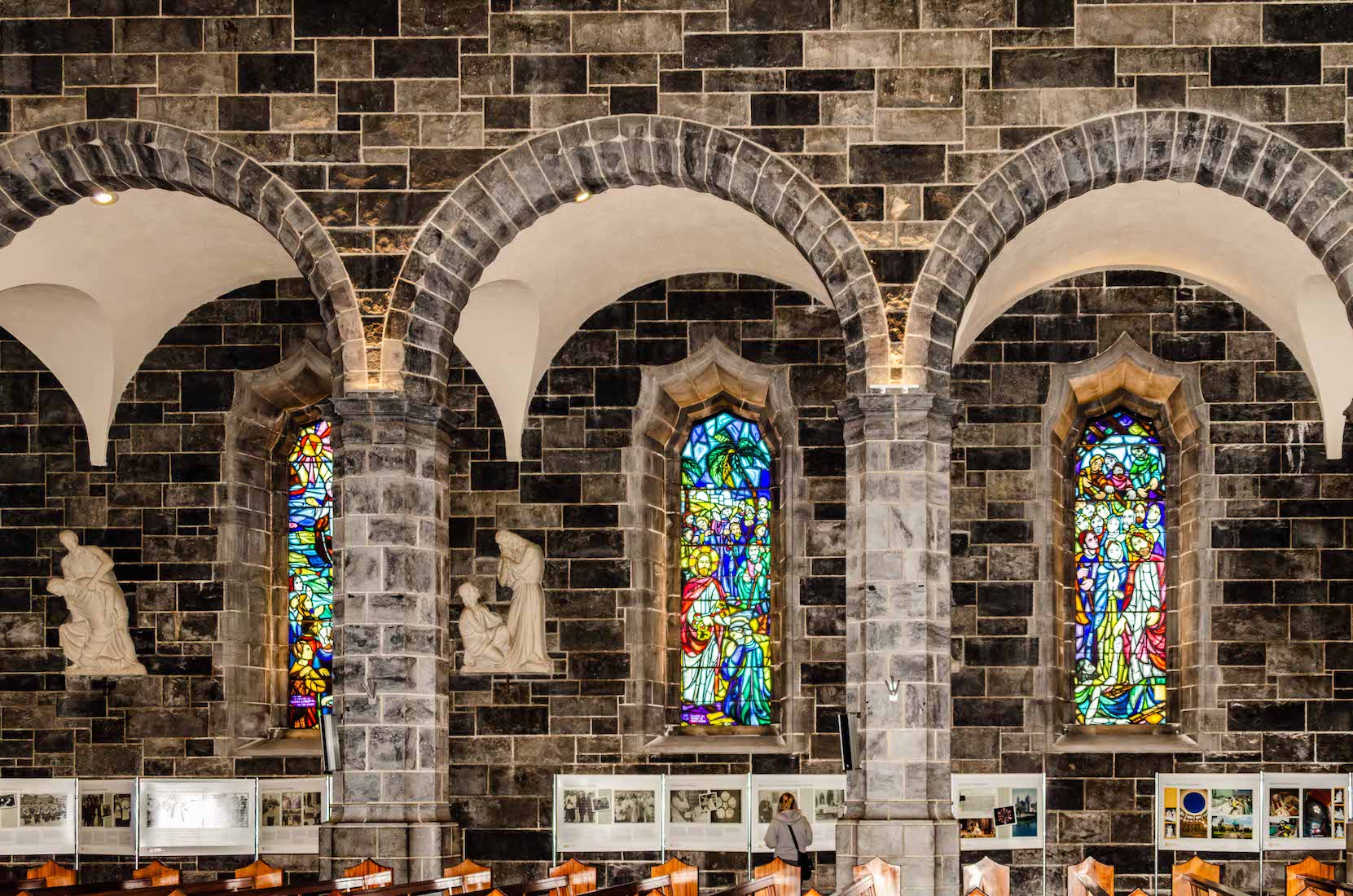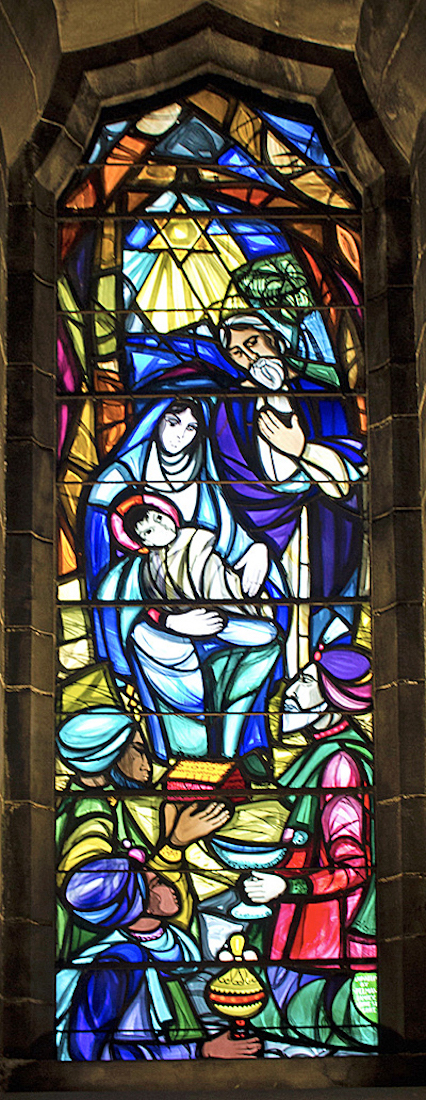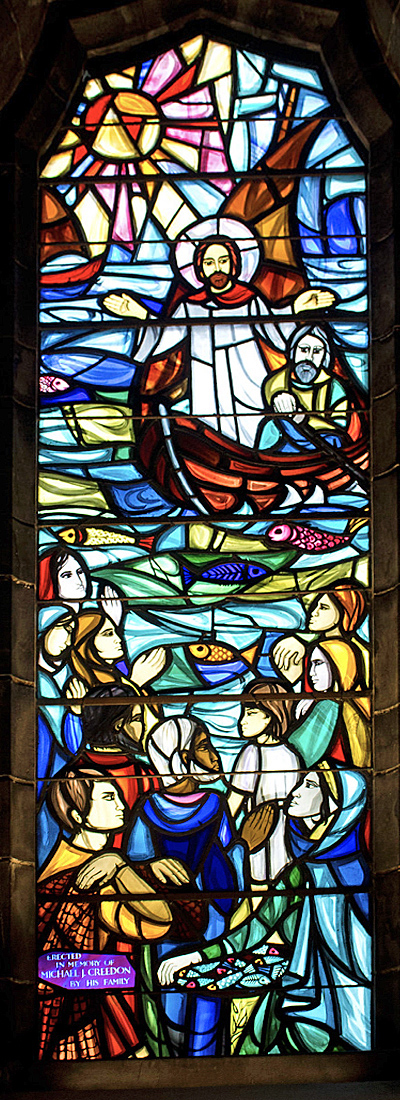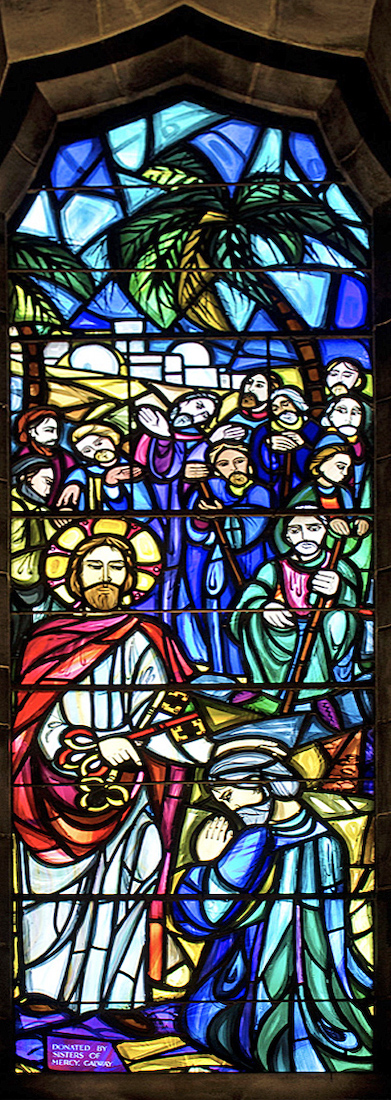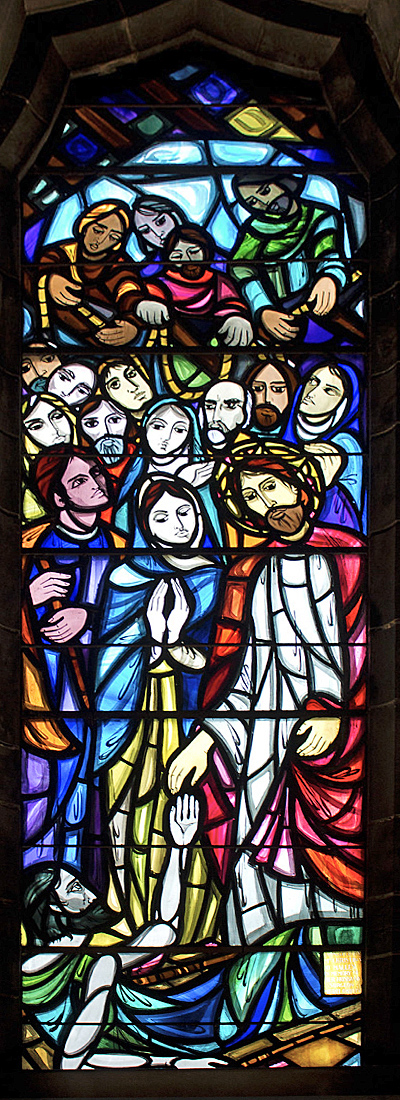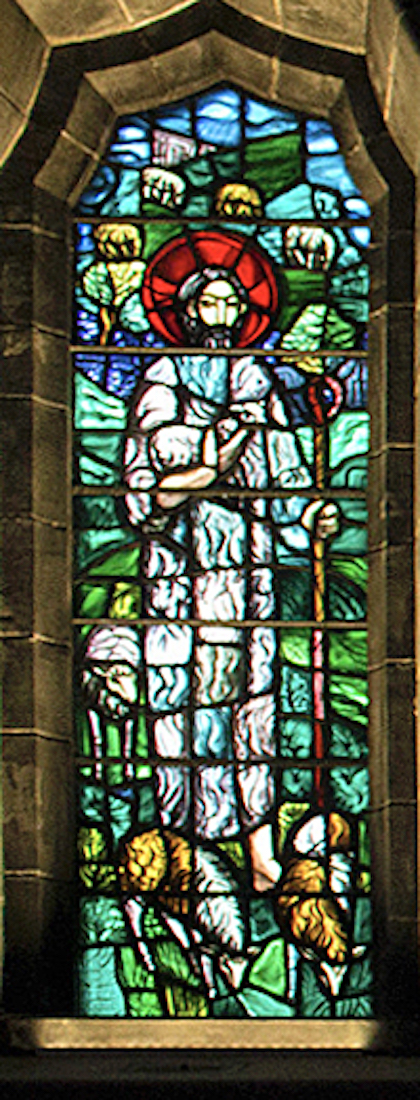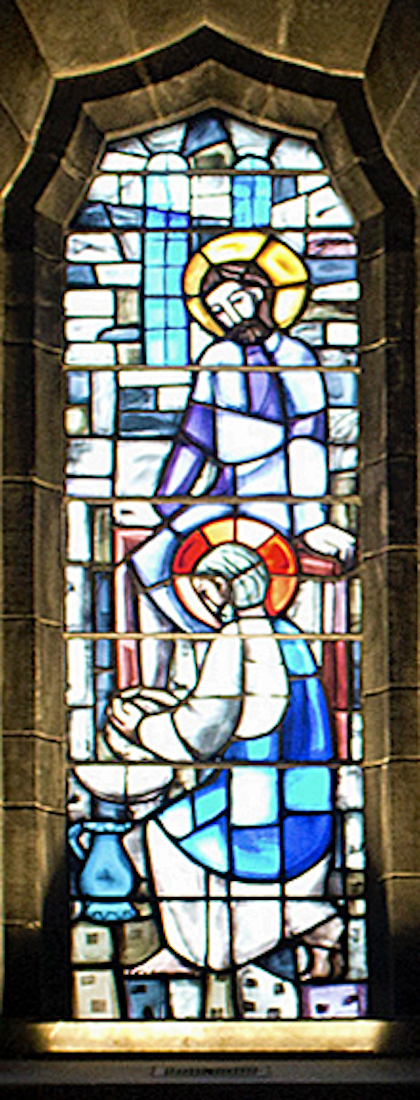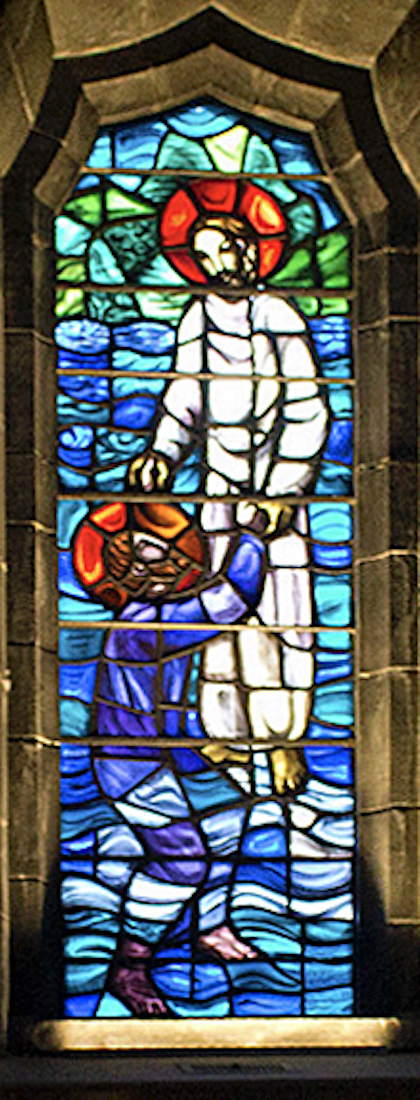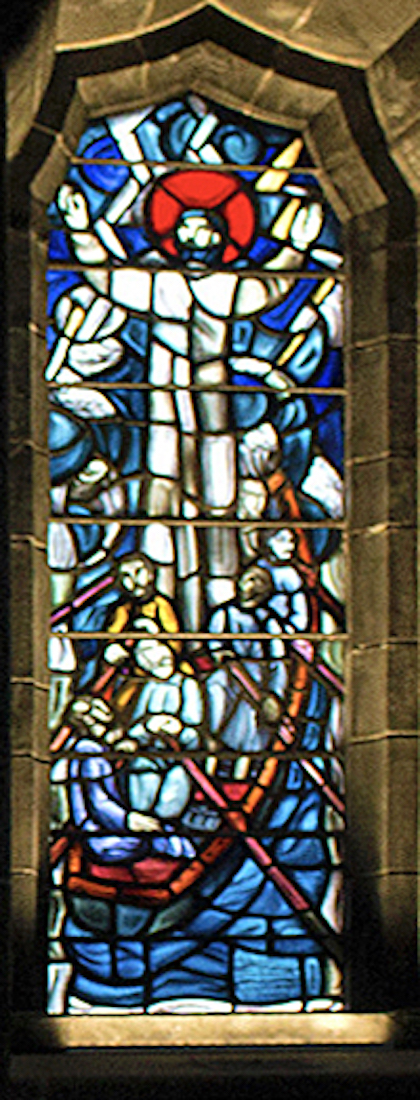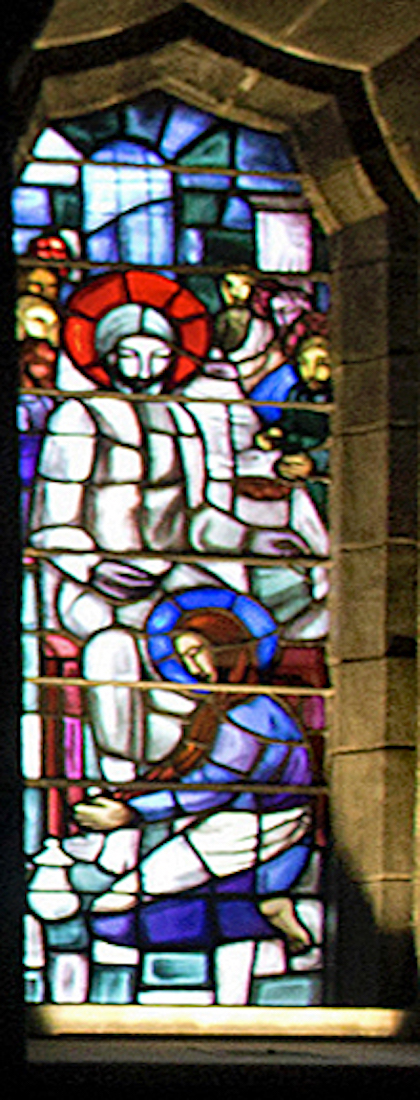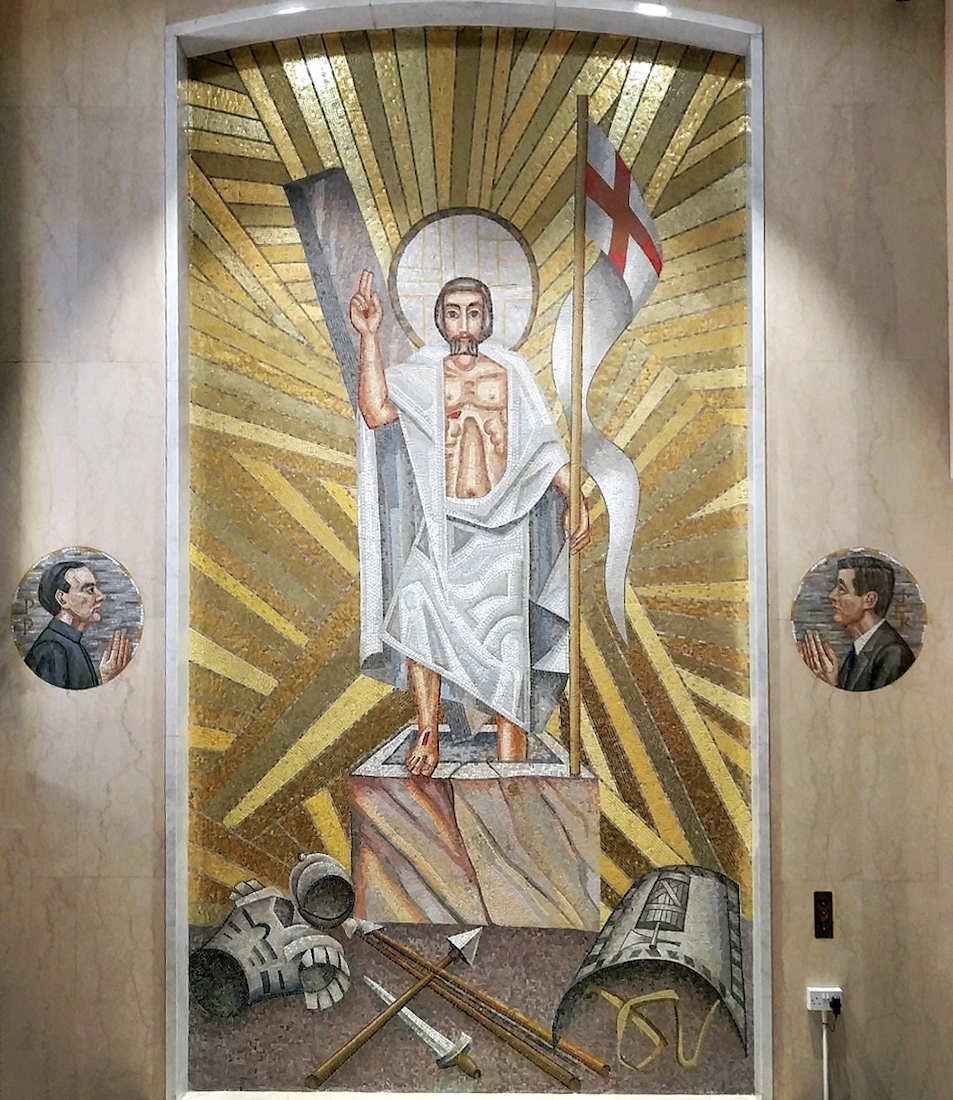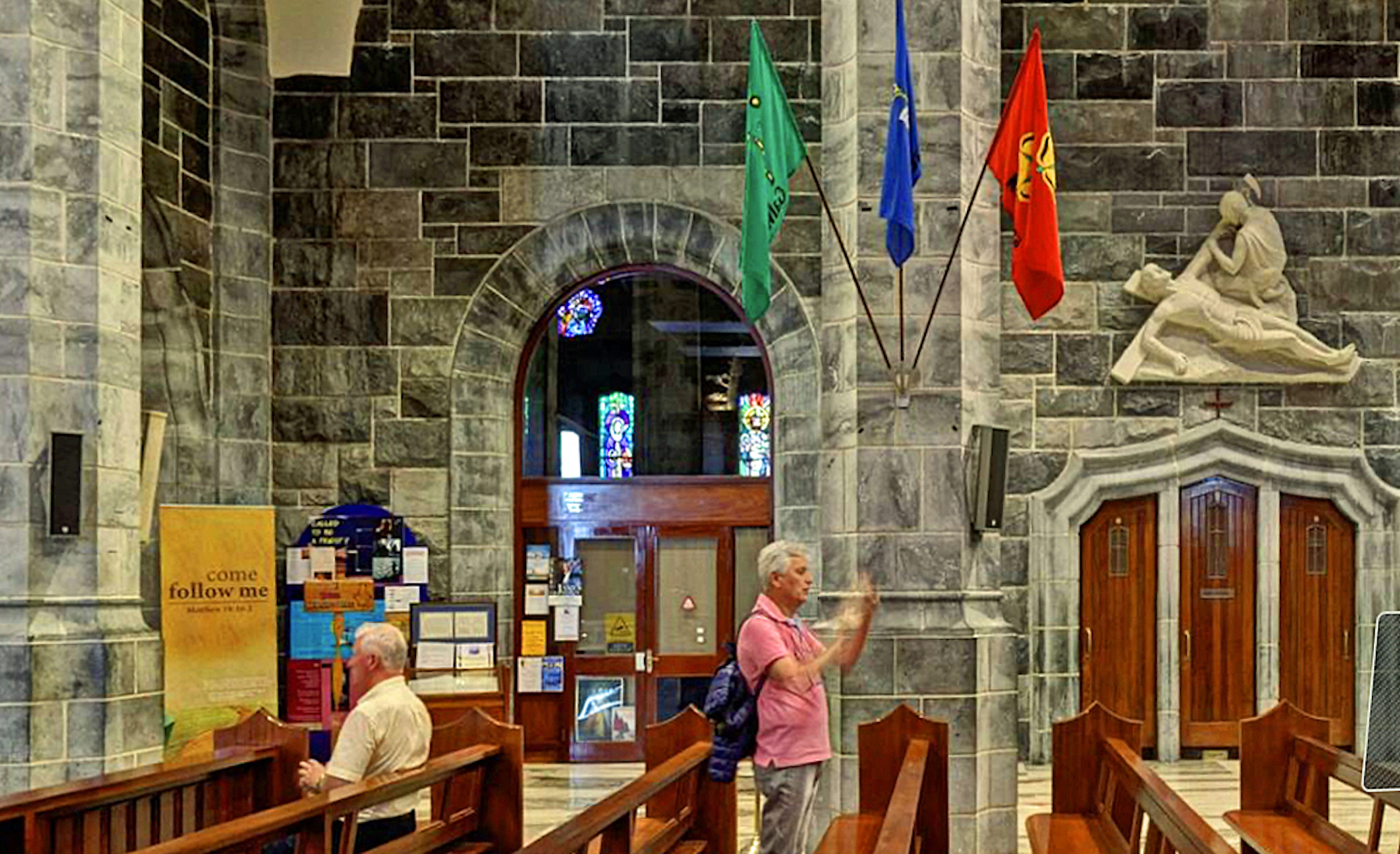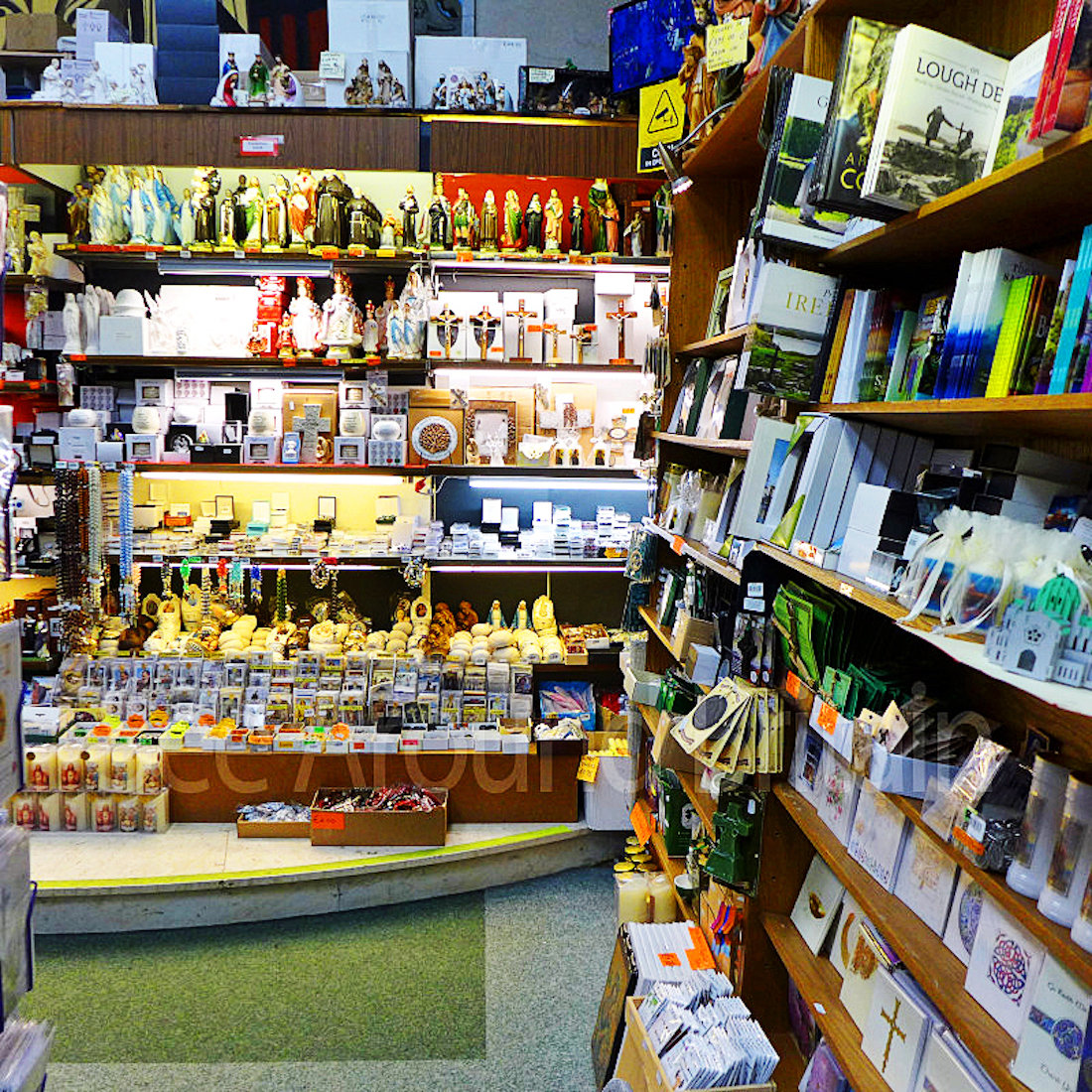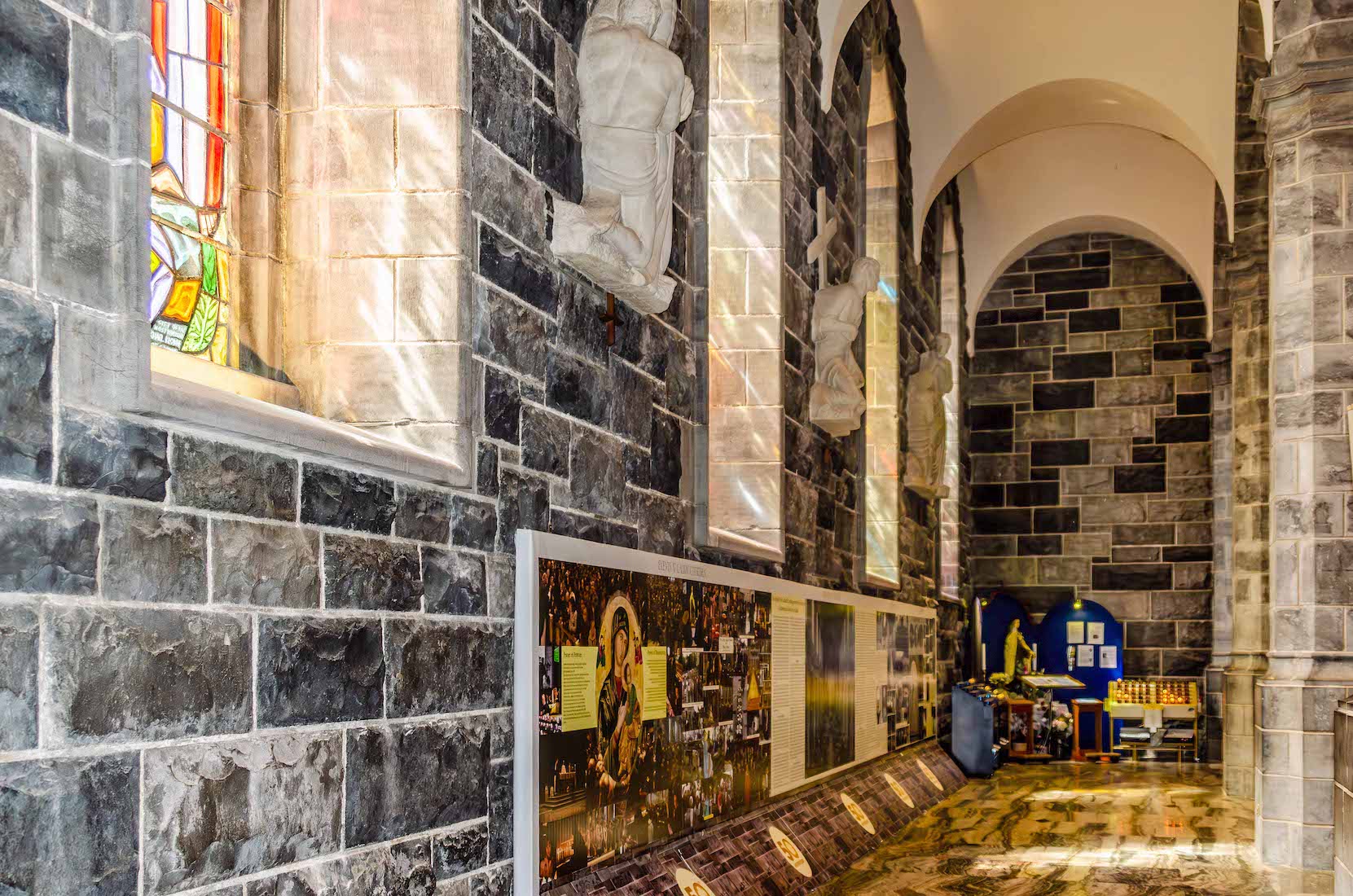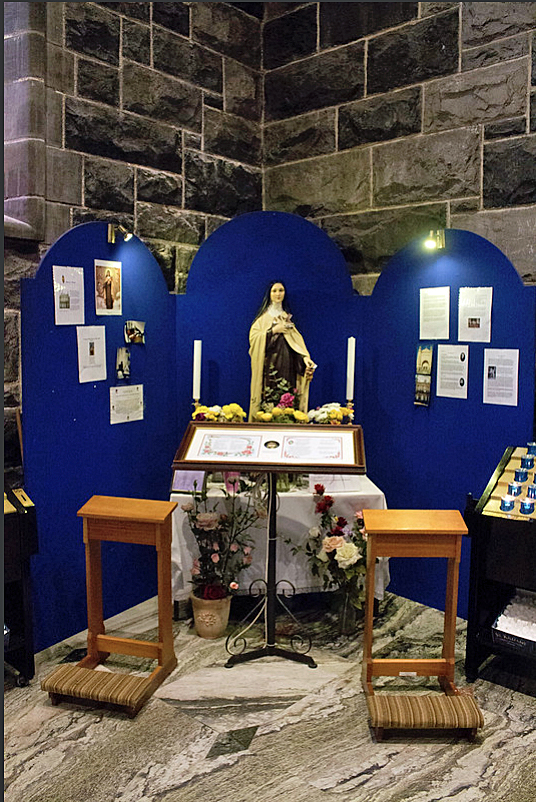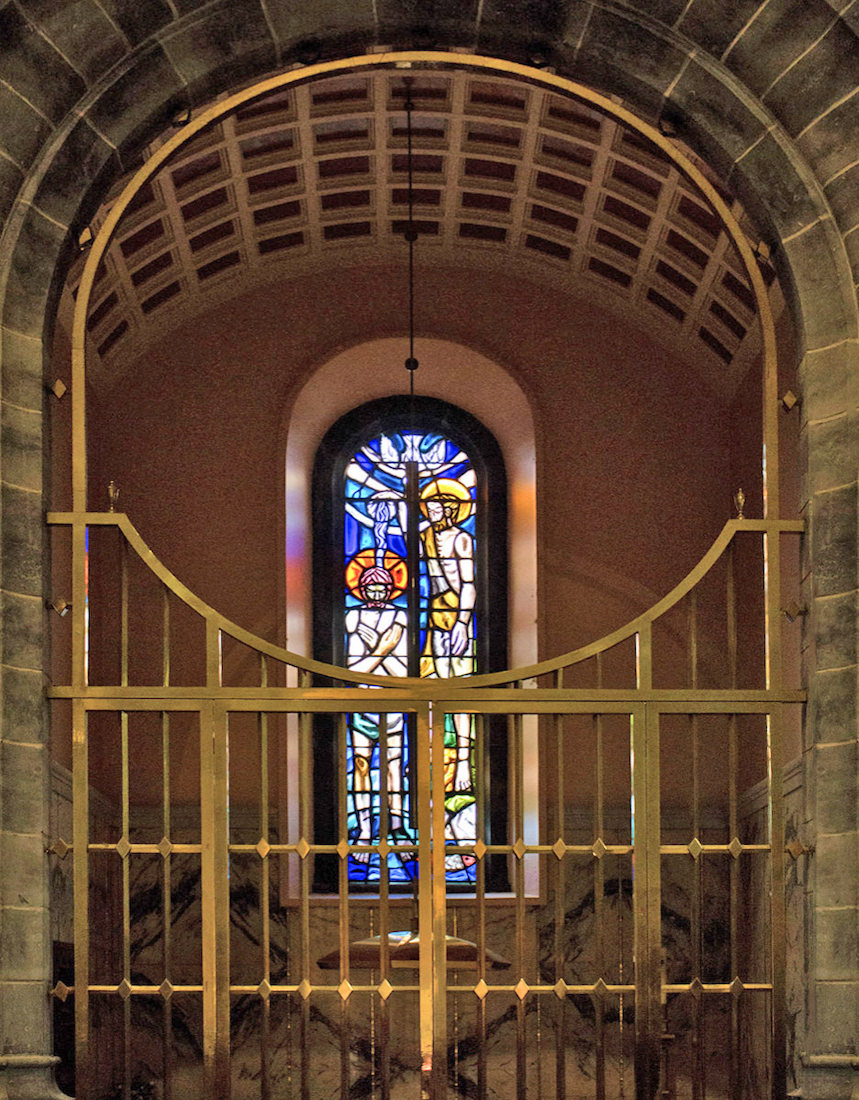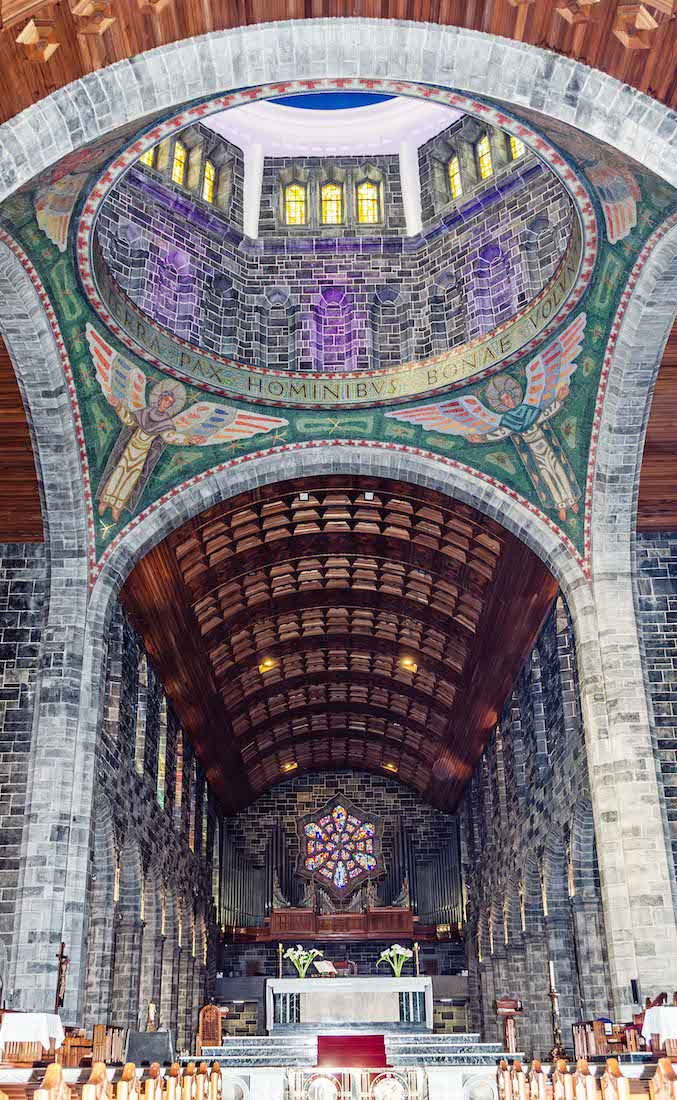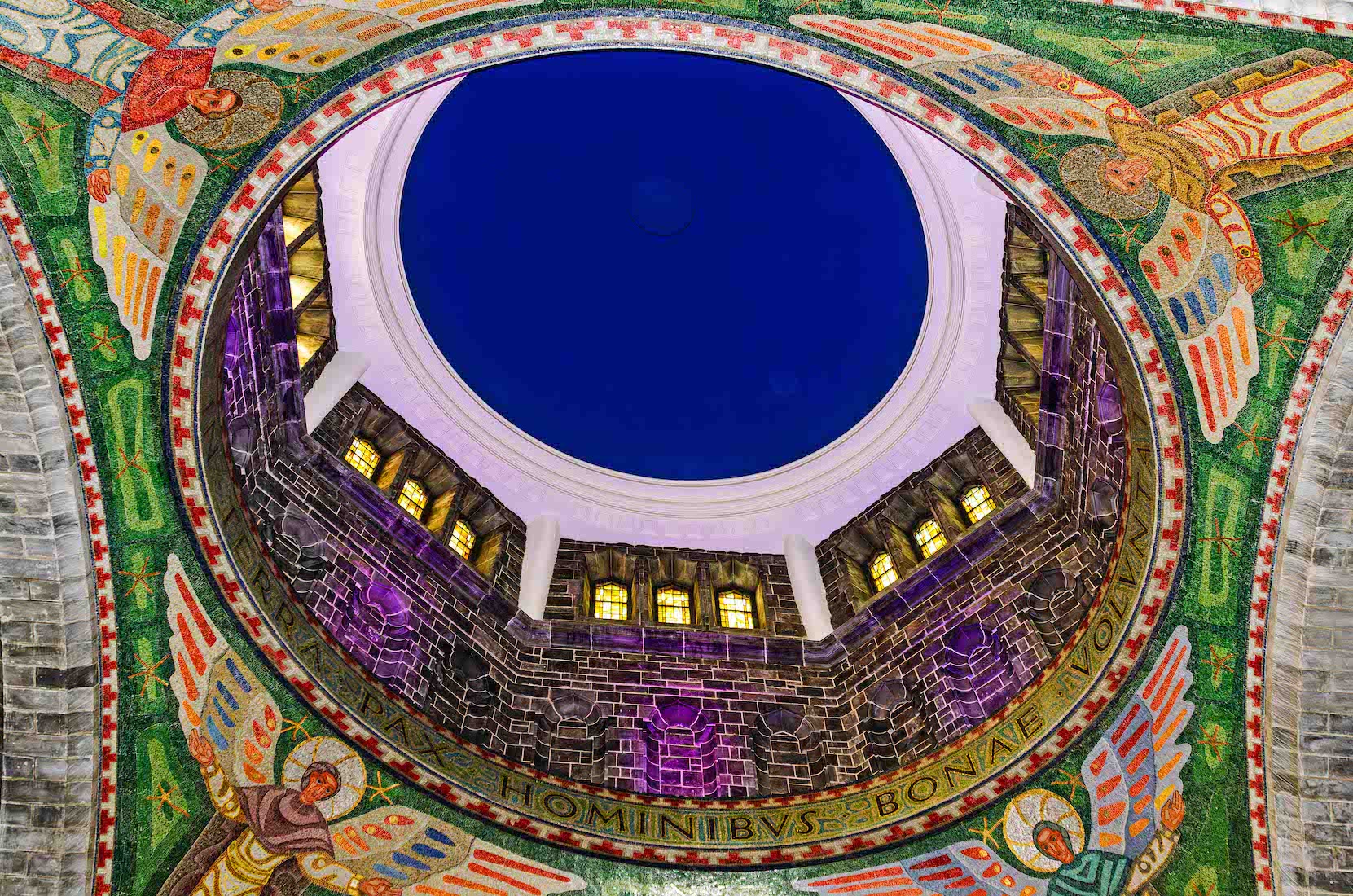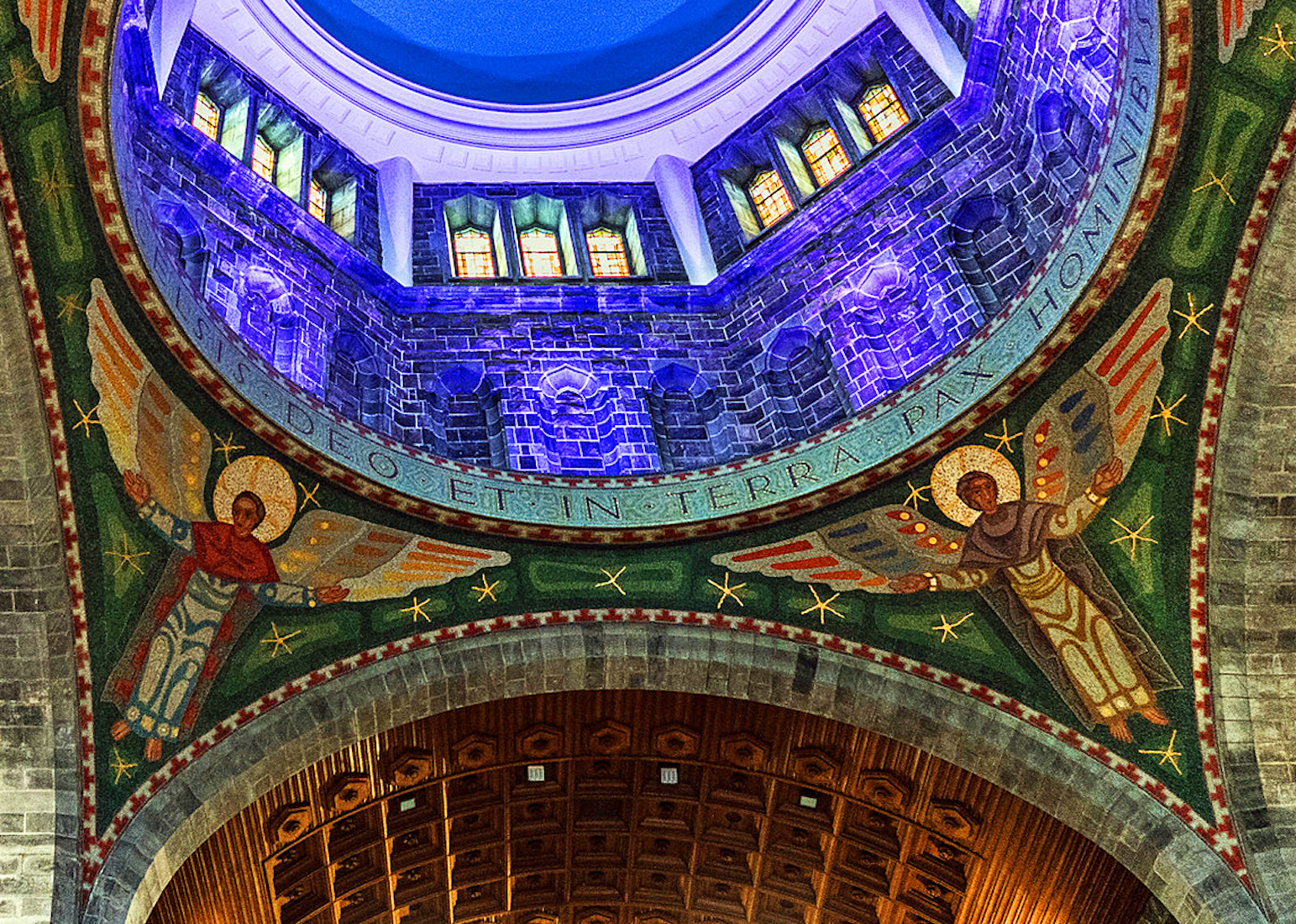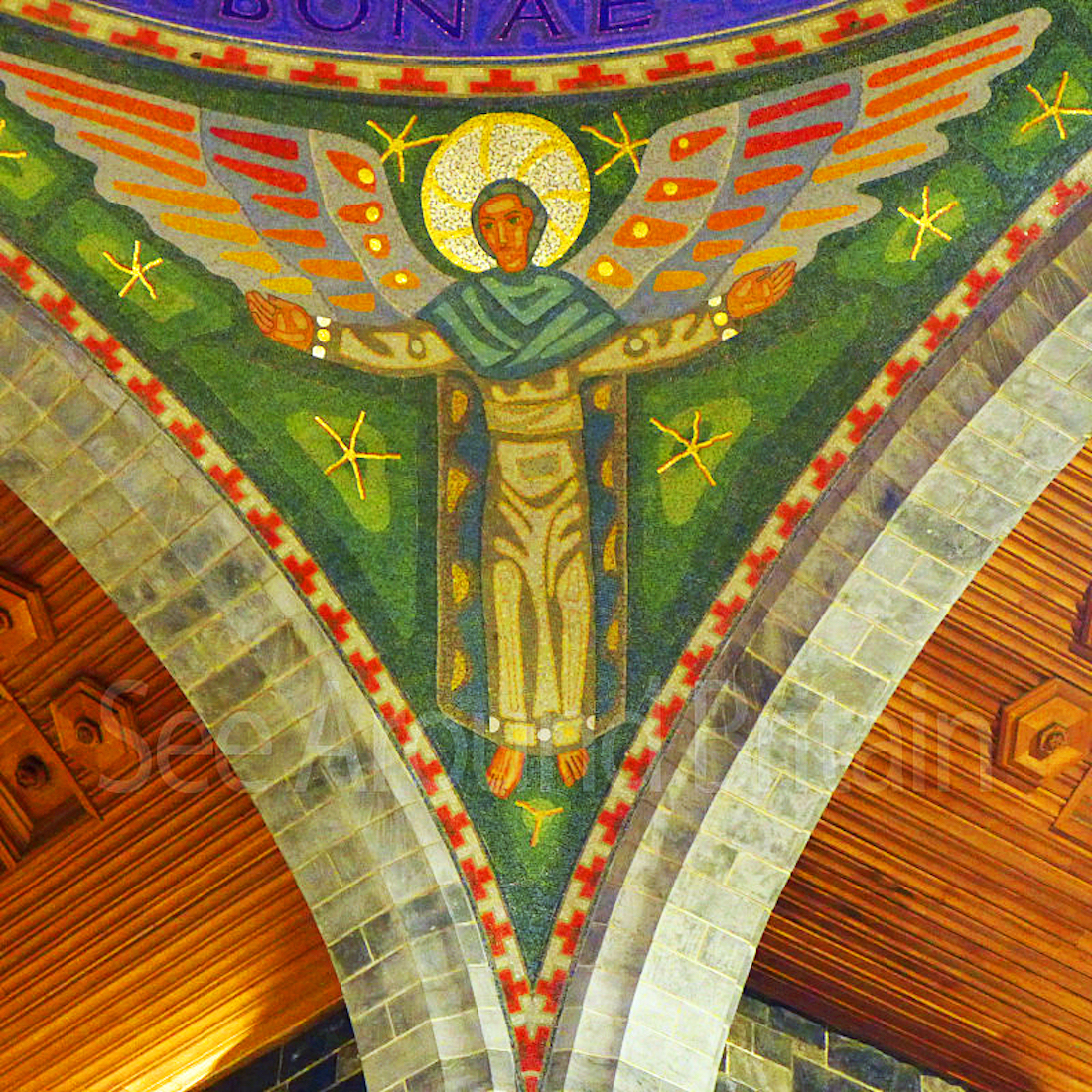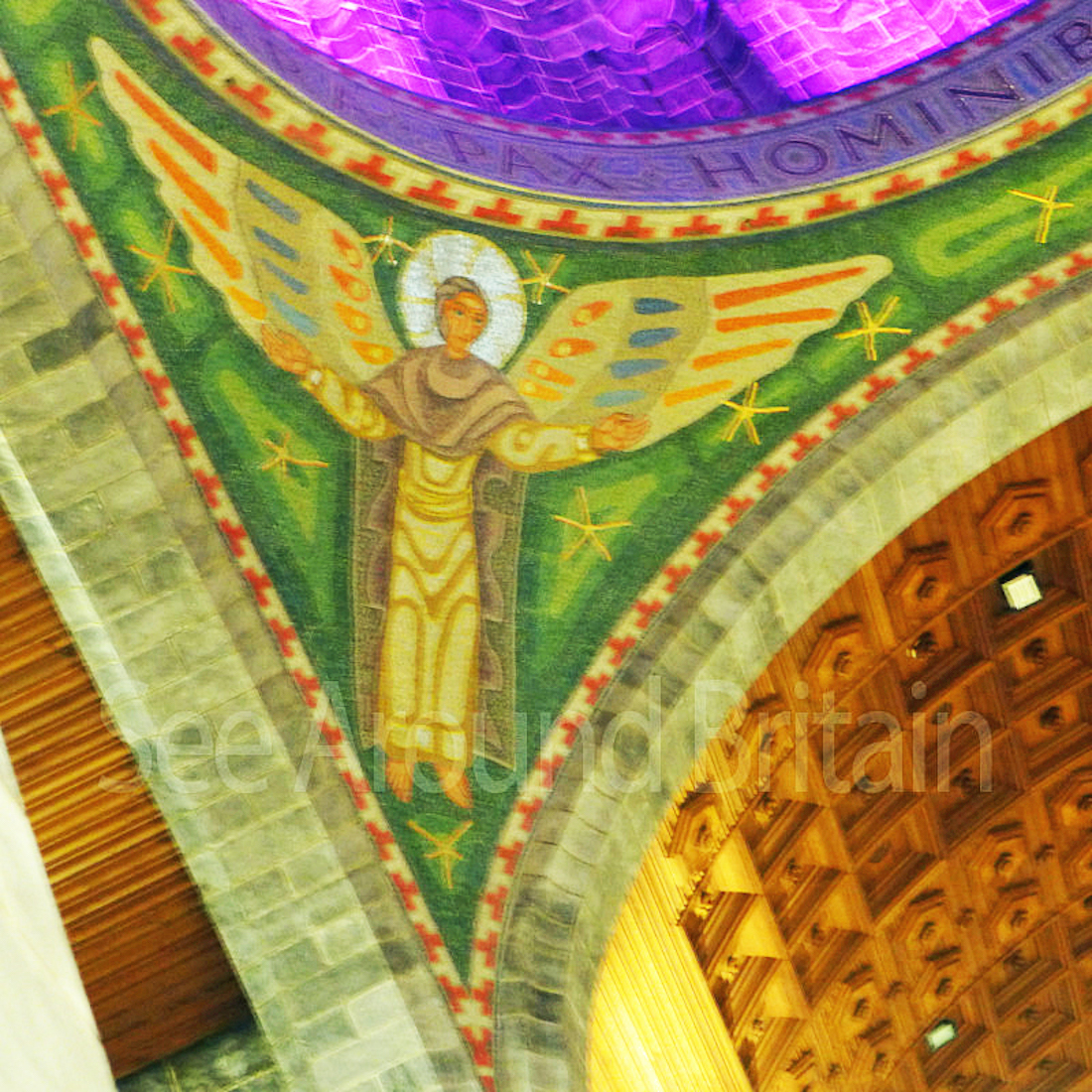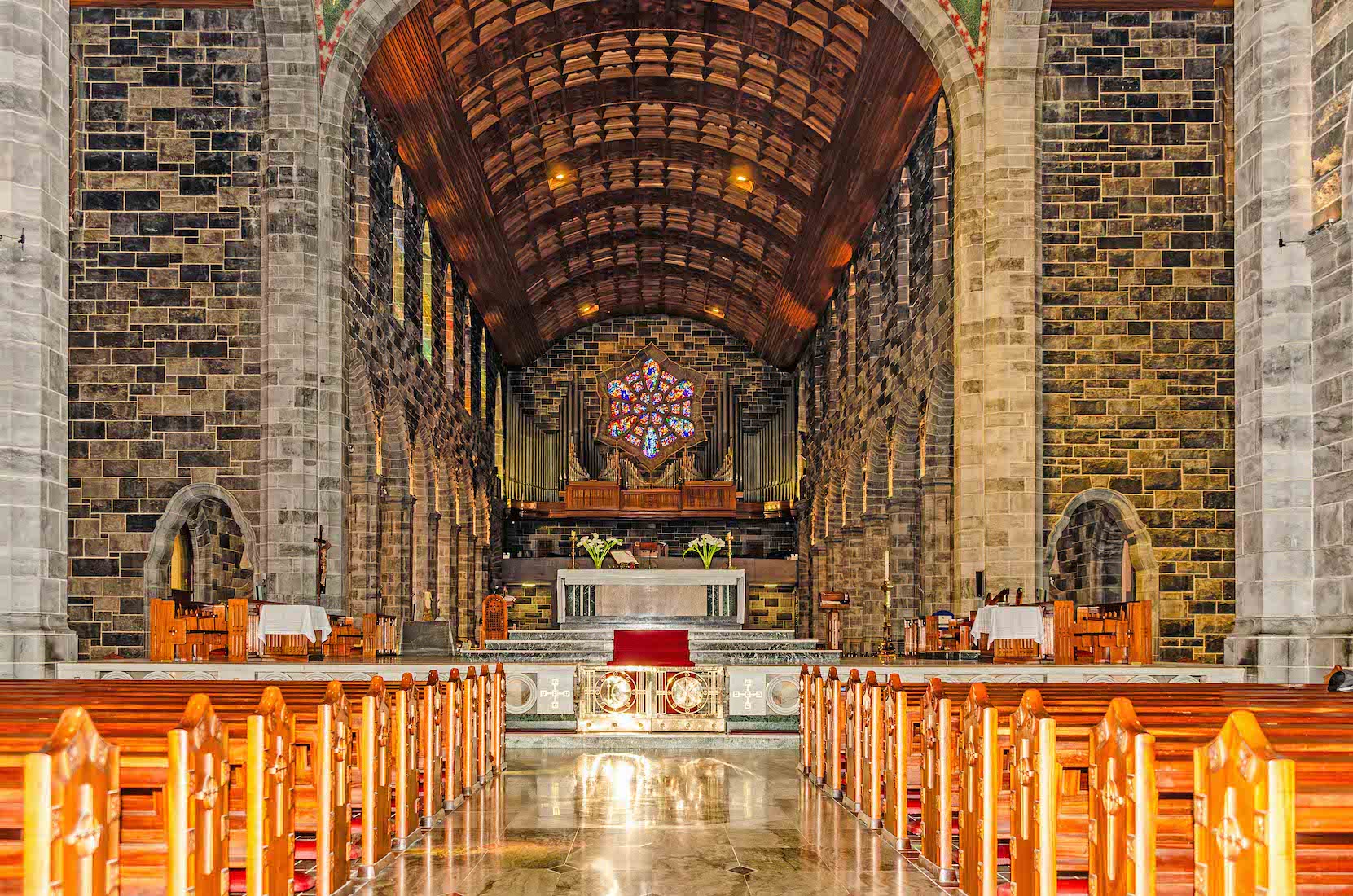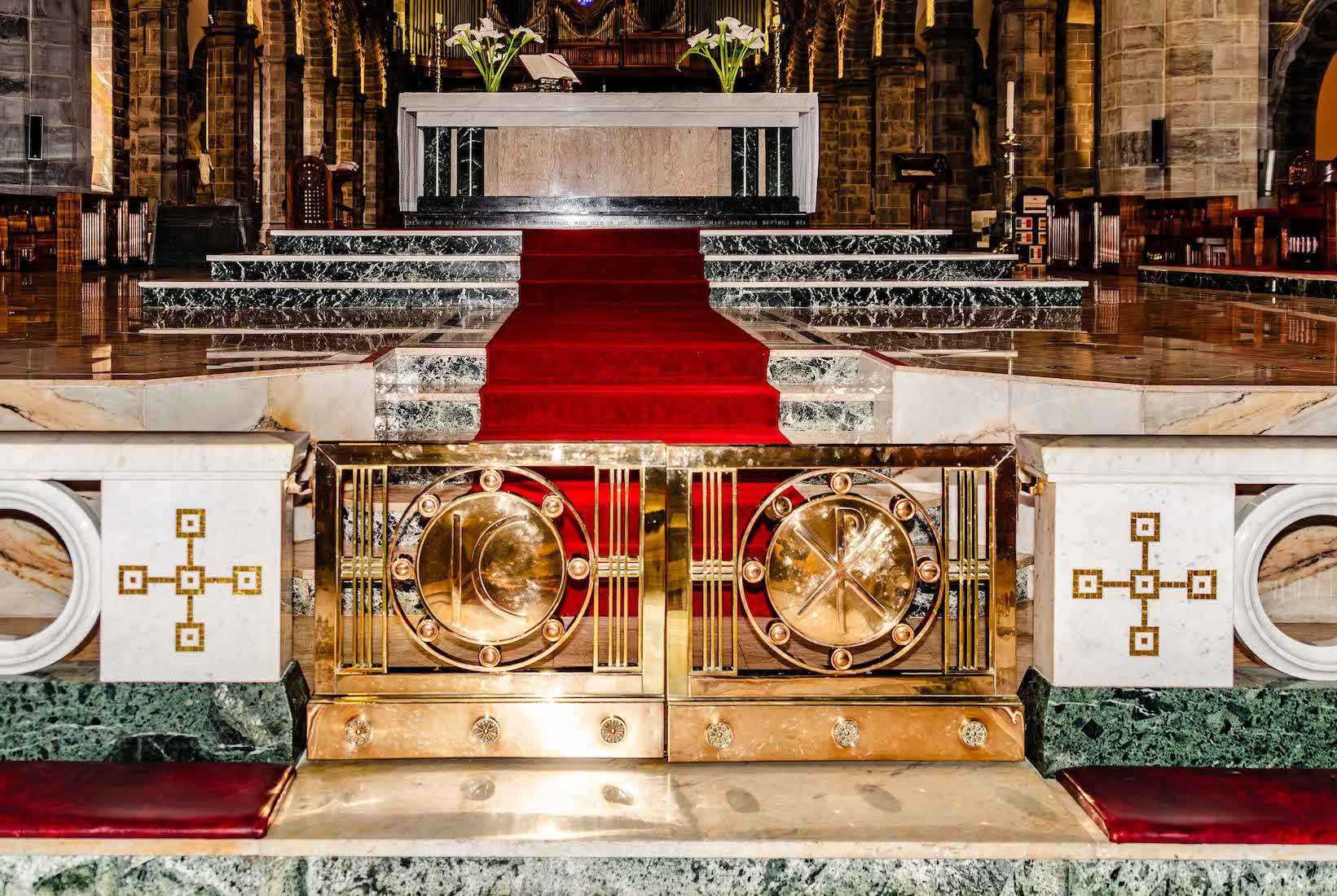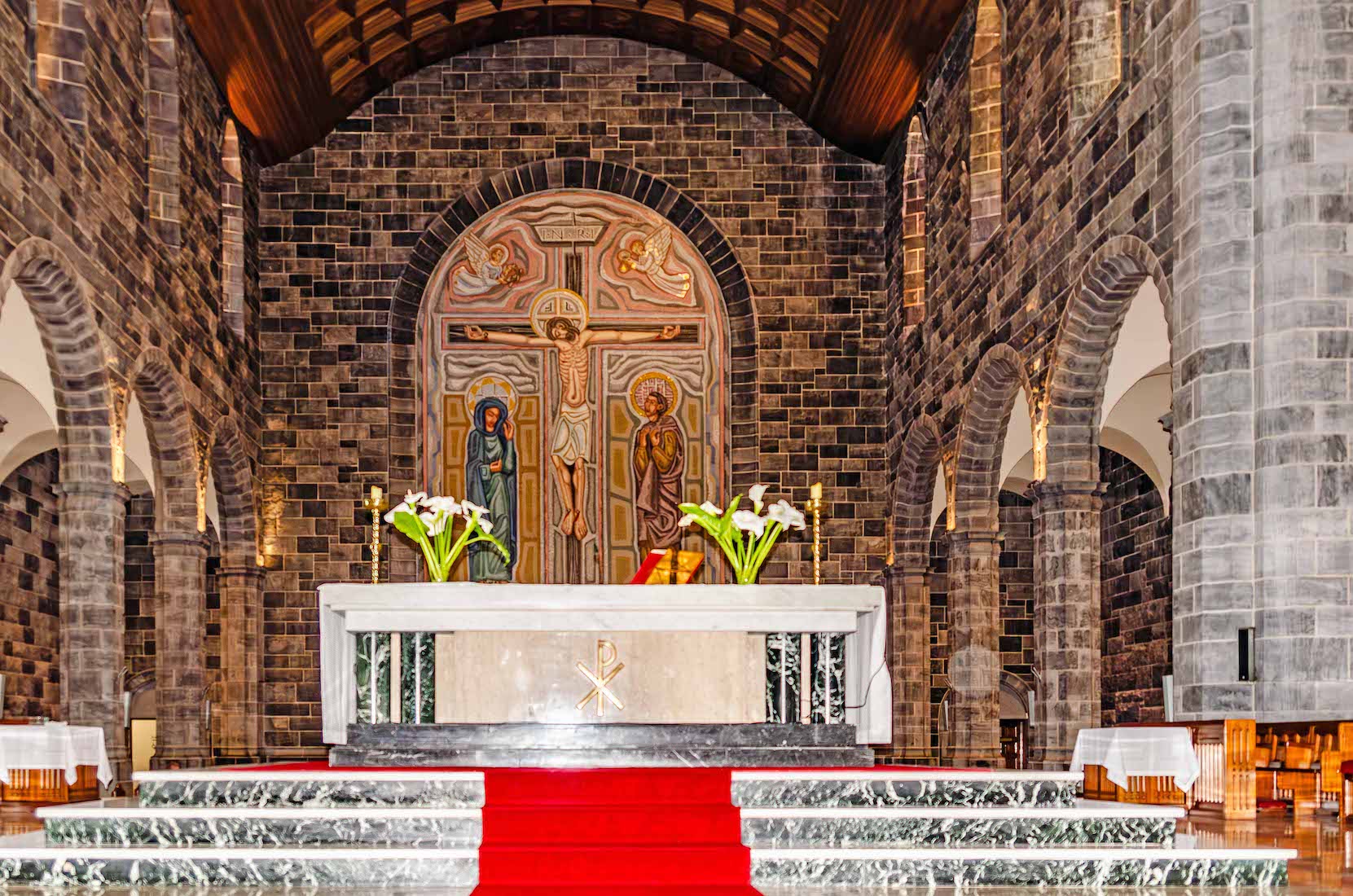21. NORTH NAVE CLERESTORY WINDOWS G (x5)


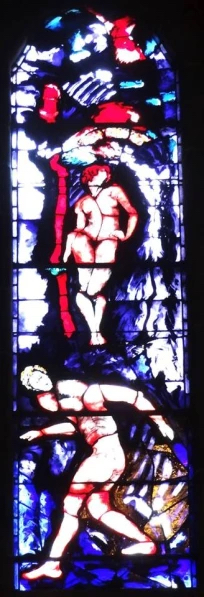
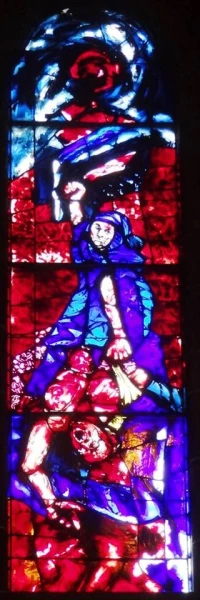


These are the clerestory windows along the North side of the nave. They form a series from Genesis, and are by James Scanlon (1999). They depict from left: Creation, Adam and Eve, the Fall and Expulsion from the Garden, Cain and Abel, Noah, and the Call of Abraham. [Photos Credit: Genesis] INDEX
22. SOUTH NAVE CLERESTORY WINDOWS PRS (x5) GC (#5)
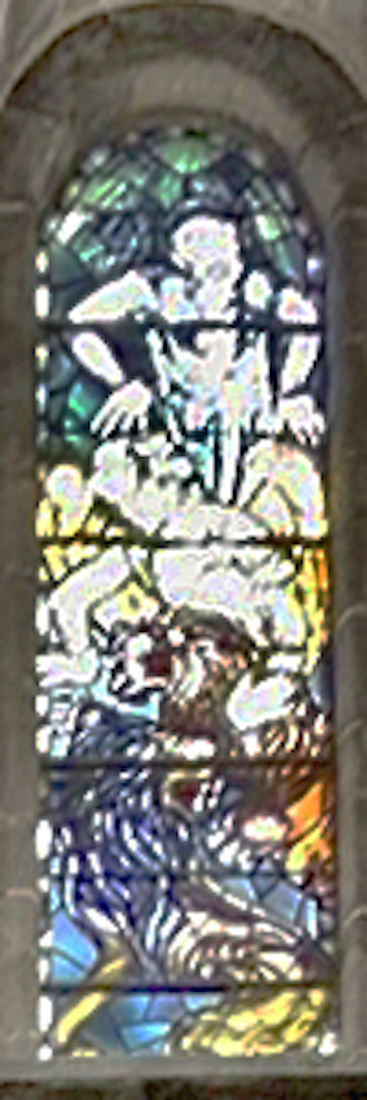


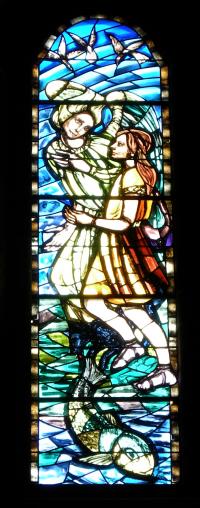
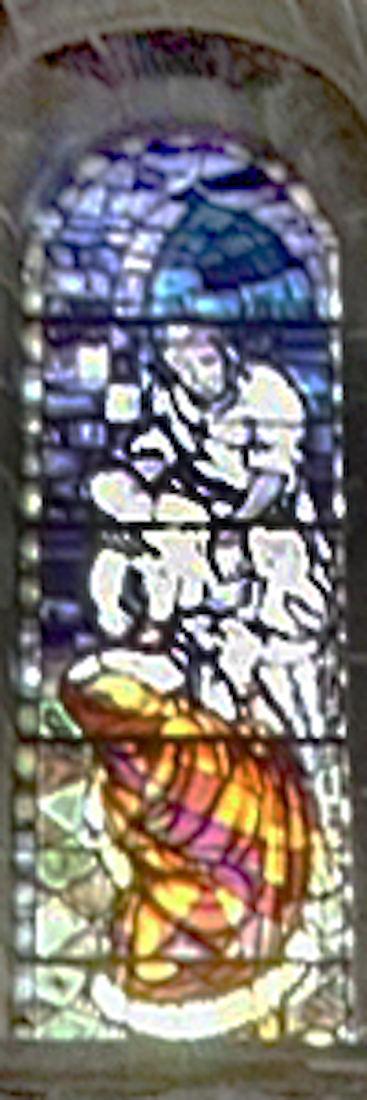
It is notoriously difficult taking good photos of clerestory windows: they are small and distant and usually too bright. So with one exception this is a rather a scrappy lot of photos. The exception is #5 showing Raphael and Tobias. In the Apocrypha, In the Bible, the archangel Raphael appears to Tobias as a peasant, assisting him on his journey to collect a debt for Tobit, his blind father. On the journey, Raphael instructs Tobias to gut a fish which had attacked him and keep its heart, liver and gall. When Tobias reunites with his father, Raphael tells him to rub the gall on his father's eyes, which restores his eyesight. I will gladly accept upgrades to these and other clerestory windows!
23. STATIONS OF THE CROSS GC
The walls of the transepts and nave are lined with the Stations of the Cross. These are images of the journey Jesus made from the time of his appearance before Pilate up to when he was taken down from the Cross. They are seen as aids to meditation, particularly around Easter time. The Station pictured here is #3: Jesus Meets his Mother. The set of all the Stations can be viewed here. The stations were sculpted over a period of 17 years by Gabriel Hayes.
24. ST JOSEPH SHRINE WM LM
From our position at the rear of the nave looking towards the altar, we turn left to the shrine of Joseph. The shrine is set in a large alcove in the base of the Northwest tower. A mosaic depiction of Joseph at work in his carpenter shop (1965) is displayed against a marble wall.
25. CRUCIFIX WM SM
From the shrine, we move to the North nave aisle. A crucifix stands at the Western end. The crucifix tends to be moved around: it is shown in a different location at right. The depiction with nails and rope is relatively rare. [Photo2 Credit: Suzanne Mischyshyn]
26. NORTH NAVE AISLE LM
Here is a view of the North aisle as seen through the arches, showing the placing of the nave windows and Stations of the Cross. Some more temporary information boards are shown too.
27. NORTH NAVE WINDOWS MML
There are four stained glass windows along the North nave aisle. The windows are in striking vibrant colours, strongly outlined. From left we have: •• The Nativity (Luke 2:1–7); •• Jesus Feeds the Crowds (Matthew 14:13-21); •• Peter Heals a Woman? [the Keys indicate that this is Peter, but none of the accounts in Acts of Peter healing match this scene]; •• Jesus Heals the Paralytic Man (Matthew 9:1-8).
28. MORTUARY WINDOWS MML
Following along this North aisle, we next come to the Mortuary Chapel. This is a small chapel with a door at the West end, five windows to the North, and a mosaic depiction of Christ to the East. We see here the five windows which show, from left: •• Jesus as the Good Shepherd (John 10:14); •• Jesus washing the disciples’ feet (John 13:2–17); •• John baptising Jesus (Matthew 3:13–17); •• Jesus stilling the storm (Mark 4:35–41); •• Mary Magdalene anointing the feet of Jesus (John 12:3–8). The four stained glass windows to the right are by Patrick Pollen.
29. MORTUARY MOSAIC MML
At the East end of the Mortuary Chapel is a Patrick Pollen mosaic of the Resurrection, with John F. Kennedy represented on the right. John Fitzgerald Kennedy, America’s first Irish-Catholic president, was a son of two families whose roots stretched back to Ireland. •• A mortuary chapel normally has a tomb placed beneath. I am not sure if this is the case here .. .
30. TO THE CATHEDRAL SHOP PRS
Directly across the nave from the Mortuary Chapel is the Chapel of St Fachnan, where the Cathedral shop is now located. Unfortunately the shop is closed, but it is just about to open! We see that there are stained glass windows in the shop, but I have been unable to identify them.
31. THE SHOP SAB
The shop has an amazing range of items on display, but this makes it difficult to see what the original chapel is like.
32. SOUTH NAVE WINDOWS MML (x4)
There are five stained glass windows along the South nave wall. From left to right they show: •• Jesus Sending out His Disciples? ; •• Moses with the Ten Commandments; •• Jesus Feeding the Crowds with the Loaves and Fishes; •• Jesus During the Temptation.
33. SOUTH NAVE AISLE AND ST THERESE SHRINE LM MML
At the West end of the south aisle there is a shrine to a Saint whom I suspect is St Therese of Lisieux. As she lay dying in 1897, St Therese could see roses blooming, flowers that she loved. She promised: “After my death, I will let fall a shower of roses. I will spend my Heaven doing good upon earth. I will raise up a mighty host of little saints. My mission is to make God loved.”
36. INTERIOR OF DOME LM WM
The dome itself is painted a deep sky-blue. It is supported by an octagon of window triplets, below which are eight supporting brick walls, each having a triplet of shallow alcoves. Below the brick walls is a circular disk bearing the words: ‘Gloria in excelsis Deo et in terra pax hominibus bonae voluntatis’ (‘Glory to God in the highest, and on earth peace to people of good will.’)
37. DOME ANGELS SAB SAB
The dome as a whole is supported by four angel figures with arms outstretched.
38. ALTAR FROM THE RETROCHOIR LM
Below the dome is a large square raised platform surrounded by a low marble wall, with a pair of golden gates on each side.
39. ALTAR AND SANCTUARY LM
The gates bear the symbols IC and (in Greek) Chi-Rho: both abbreviations for Jesus Christ.
40. FRONT OF ALTAR LM
The large marble altar bears two candles, two vases of lilies and a small reading stand.


